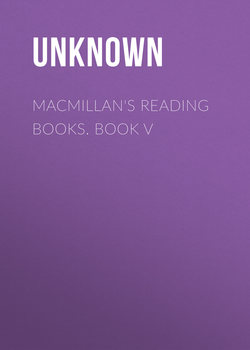Читать книгу Macmillan's Reading Books. Book V - Unknown - Страница 20
На сайте Литреса книга снята с продажи.
BOOK V
LOCHINVAR
ОглавлениеOh, young Lochinvar is come out of the west,
Through all the wide border his steed is the best;
And, save his good broad-sword, he weapon had none;
He rode all unarmed, and he rode all alone!
So faithful in love, and so dauntless in war,
There never was knight like the young Lochinvar!
He stay'd not for brake, and he stopped not for stone,
He swam the Eske river where ford there was none—
But, ere he alighted at Netherby gate,
The bride had consented, the gallant came late;
For a laggard in love, and a dastard in war,
Was to wed the fair Ellen of brave Lochinvar!
So boldly he entered the Netherby Hall,
Among bridesmen, and kinsmen, and brothers, and all!—
Then spoke the bride's father, his hand on his sword—
For the poor craven bridegroom said never a word—
"Oh come ye in peace here, or come ye in war?—
Or to dance at our bridal? young Lord Lochinvar!"
"I long woo'd your daughter, my suit you denied:
Love swells like the Solway, but ebbs like its tide!
And now am I come, with this lost love of mine,
To lead but one measure, drink one cup of wine!
There be maidens in Scotland, more lovely by far,
That would gladly be bride to the young Lochinvar!"
The bride kissed the goblet, the knight took it up,
He quaffed off the wine, and he threw down the cup!
She looked down to blush, and she looked up to sigh—
With a smile on her lip, and a tear in her eye.
He took her soft hand, ere her mother could bar—
"Now tread we a measure!" said young Lochinvar,
So stately his form, and so lovely her face,
That never a hall such a galliard did grace!
While her mother did fret, and her father did fume,
And the bridegroom stood dangling his bonnet and plume,
And the bride-maidens whispered, "'Twere better by far
To have matched our fair cousin with young Lochinvar!"
One touch to her hand, and one word in her ear,
When they reached the hall door, and the charger stood
near:
So light to the croup the fair lady he swung,
So light to the saddle before her he sprung!
"She is won! we are gone, over bank, bush, and scaur;
They'll have fleet steeds that follow!" cried young
Lochinvar.
There was mounting 'mong Graemes of the Netherby clan;
Forsters, Fenwicks, and Musgraves, they rode and they ran;
There was racing and chasing on Cannobie Lea,
But the lost bride of Netherby ne'er did they see!
So daring in love, and so dauntless in war,
Have ye e'er heard of gallant like young Lochinvar?
SCOTT.
[Notes: Lochinvar. The song sung by Dame Heron in 'Marmion,' one of Scott's longest and most famous poems. The fame of Scott (1771-1832) rests partly on these poems, but much more on the novels, in which he is excelled by no one.
He stay'd not for brake. Brake, a word of Scandinavian origin, means a place overgrown with brambles; from the crackling noise they make as one passes over them.
Love swells like the Solway. For a scene in which the rapid advance of the Solway tide is described, see the beginning of Scott's novel of 'Redgauntlet.'
Galliard. A gay rollicker. Used also in Chaucer.
Scaur. A rough, broken ground. The same word as scar.]
* * * * *
